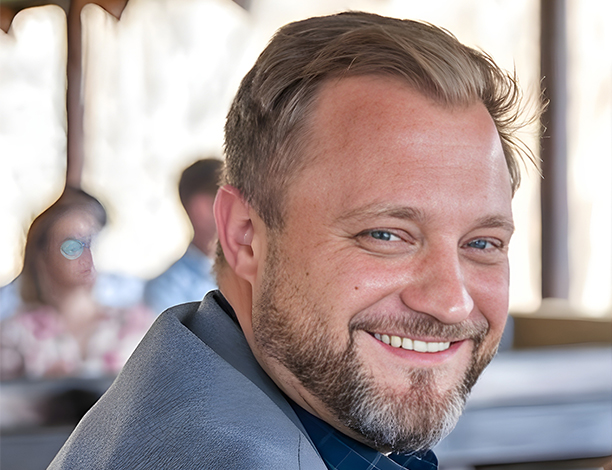With Matric exams approaching and applications for tertiary studies being submitted, many Grade 12 learners (and their families) are asking: What should I study? What if I fail? What if I don’t know what to do? To help, IIE-Vega, an educational brand of the Independent Institute of Education (The IIE), recently hosted a candid online Q&A session titled “Finding your career path to passion and purpose”.
The discussion featured Professor Zak Nel, a veteran Career Counsellor and Counselling Psychologist, and his son Zak Nel Junior, an Industrial Psychologist, Psychometrist and Doctoral candidate at the University of the Free State. His research focuses on the impact of Artificial Intelligence (AI) in career counselling. The father and son duo gave practical, honest advice to help Grade 12 learners make informed choices about their future.
Here are the 10 most common questions from Grade 12 learners and the expert advice they received.
1. What is career counselling and why is it important?
Professor Nel: “It’s a specialised area in professional Psychology. You need to be skilled in interviewing, interpreting Psychometric tests at a high level and in working with information. Neuropsychology knowledge is also crucial. If parents want to find a good Career Counsellor, look for a registered professional Psychologist who specialises in these areas – ideally someone with a Doctoral degree”.
2. Why is it important to choose the right study path?
Nel Junior: “South Africa offers many study options. To avoid burnout, it’s important to pursue something that genuinely fuels your passion. Choosing the right career can give you internal motivation and long term happiness. The whole point of pursuing a career is to be fulfilled”.
3. Does the institution you choose really matter?
Nel Junior: “Both private and public tertiary institutions in South Africa are highly recognised. Public universities have bigger classes and focus more on research output, while private tertiary institutions have smaller classes and more in depth teaching methods. However, it’s really about personal preference and the type of qualification you’re looking for”.
4. What if I’m still unsure about what to study and my parents have doubts about my study choices?
Professor Nel: “In South Africa, subject choices and academic achievement usually guide career decisions.

As Matric exams approach and tertiary applications are being submitted, IIE-Vega hosted a candid online Q&A session with veteran Career Counsellor and Counselling Psychologist Professor Zak Nel (pictured) and his son Zak Nel Junior, an Industrial Psychologist and Psychometrist, to help Grade 12 learners and parents navigate the road ahead.

As Matric exams approach and tertiary applications are being submitted, IIE-Vega hosted a candid online Q&A session with veteran Career Counsellor and Counselling Psychologist Professor Zak Nel and his son Zak Nel Junior (pictured), an Industrial Psychologist and Psychometrist, to help Grade 12 learners and parents navigate the road ahead.
For example, a learner with subjects like Art, Computer Applications Technology and Geography may lean towards a more creative career while a learner taking Physical Science and Engineering Graphics and Design could be suited for engineering. If you’re unsure, look at subjects and your marks - that would be a guiding factor”.
Nel Junior: “Talk to your parents. Share your plan, even a five year plan. Parents want to know that you’re going to be healthy, happy and successful. For Matric learners, be realistic about your goals and communicate clearly”.
Professor Nel agreed, adding that parents need to listen to their children and that they should keep the conversation open.
5. What if I fail Matric or don’t get a Bachelor’s Pass? Are there still options for further study or to get into tertiary institutions?
Professor Nel: “It’s not the end of the world. If you fail, repeat Matric – it’s still the basic requirement for most jobs. If you don’t get a Bachelor’s Pass, there are still options like a Diploma or a Higher Certificate, which are offered by many private institutions and recognised by public universities. A Higher Certificate acts as a bridging course into a Degree. So don’t give up on your dreams - it’s the next intuitive step and means you’re still progressing academically”.
“Tertiary institutions mostly use Grade 11 results for initial applications and public tertiary institutions have computerised systems that automatically screen them. If you don’t meet the minimum requirements for a specific Degree, the system will block your application. For example, if your marks average around 50%, that might not be enough for top degrees, but you can still get into a tertiary institution”.
“Check which qualifications you do qualify for; you can still apply. And once your Matric results are out, you might be able to negotiate with the tertiary institution for your preferred course if space allows. Private tertiary institutions are able to offer more flexible pathways that can help you keep moving forward”.
6. What if I want to study Medicine?
Professor Nel: “You must be passionate, be willing to sacrifice and you must be focused. A good way to test if this field is right for you is to attend the four day international ‘Future Doctors’ workshop. Email us at office@careerpractice.co.za for more details. It’s a good reality check”.Nel Junior: “Academically, this is a very difficult Degree to get into. At the University of Pretoria, for example, the average required to get into Medicine is 86.4%. They look at your Physical Science, Life Science and Mathematics subjects, average those, and then add your other three subjects (excluding Life Orientation). If your average is 85% at the end of Grade 11, there is still hope of getting accepted. There are also second and third year entry paths into Medicine”.
Professor Nel added that one can consider related fields such as Genetics Counselling, Neuropsychology, Physiotherapy or Biokinetics as alternative Health Sciences options.
7. Can I still study law if my Grade 11 marks weren’t great and I haven’t been provisionally accepted yet?
Professor Nel: “There are three entrance degrees in law in South Africa – Bachelor of Commerce Law (BCom Law), Bachelor of Arts Law (BA Law) and Bachelor of Laws (LLB). If you struggle with Maths, BA Law might be a better fit. If you don’t meet the requirements or have a Diploma pass, consider a private tertiary institution that offers a bridging programme into BA Law”.
Nel Junior: “If you choose BA Law, pick elective subjects like Politics, Fundamentals of Law, Psychology or Sociology. From there you can pursue a two year postgraduate LLB degree at any tertiary institution. Also, don’t apply to just one tertiary institution, apply broadly”.
8. What should learners interested in Engineering know?
Junior Nel: “The world of Engineering is expanding rapidly, especially with AI. Think about fields like Computer Engineering, Data Science, Computer Science and Biomedical Engineering. You need to do extremely well in Physical Science and Mathematics. Add your marks for Maths, English and Physical Science and divide by that by three. If it’s under 70%, you may struggle with applications”.
9. What if I’m interested in the arts, design or creative career?
Professor Nel: “Parents often worry about job opportunities and salaries in the creative fields, but the opposite is true. Big companies value creativity, especially creative thinking. There are many types of creativity – artistic, audiovisual, linguistic. The key is to identify your type and to develop it. The best time to grow your creativity is between the ages of 12 and 23.”10. How do I balance workload, stress and personal well-being in Grade 12?
Nel Junior: “Grade 12 is demanding – exams, sport, social events like the Matric dance. My advice: schedule regular ‘me time’. For example, take a Friday or Saturday night off. During that time out, stay off social media for about two hours and just use that time to reflect or relax. It makes a real difference.”


